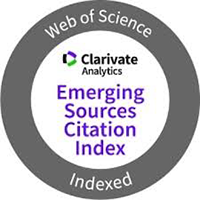Determining the effectiveness of marketing mix strategies in sport used by zimbabwean universities
Keywords:
sports marketing, management, sports strategies, sports associations.Abstract
The nature and significance of Marketing Management in the Zimbabwe Tertiary Sports sector is opaque and remains under researched. A comprehensive model of sports marketing does not exist. Zimbabwe Tertiary Education Sports Associations have been struggling to meet the needs of their internal and external customers. Organisations in the Tertiary Sport sector are facing many challenges, primarily in the areas of financial viability, attractiveness to sponsors and lack of media coverage among others. These were found to be ineffective in terms of marketing in general and conducting market researches to identify customer needs. A comprehensive model of sports marketing for tertiary associations does not exist yet and there is need for it to be established. The research looks at the strategies that can be put in place to give the association a competitive advantage. The research objectives includes examining the nature and effectiveness of the sports marketing mix strategies used by Zimbabwean tertiary sports associations and identifying the sports marketing mix strategies used by Zimbabwean tertiary sports associations. Literature reviewed that it can be possible. The study adopted a qualitative approach. This was done so as to have a deeper insight of the associations and their link to external stakeholders. In this research data was presented in the form of tables and charts and analysis was done in qualitative form. This enabled the researcher to pick and analyse salient issues that could be analysed quantitatively. It was established that the current marketing mix strategies used by associations need to be improved on the findings. The study’s major recommendation is to make the associations adopt a strategic business model approach in the running of their affairs.Downloads
References
David Aaker and Erich Joachimsthaler, Brand Leadership, (New York: Free Press, 2000).
Martyn Denscombe, The Good Research Guide. For Small Social Research Projects. (Glasgow: McGraw-Hill House, 1998).
Amedeo Giorgi, (1997). “The theory, practice, and evaluation of the phenomenological method as a qualitative research procedure”, Journal of Phenomenological Psychology, 28 (2), (1997): pp. 235-260.
Philip Kotler and Kevin L. Keller, Marketing Management, (New Jersey: Pearson Prentice Hall, 2009), 13th edition.
Philip Kotler and Gary Armstrong, Principles of Marketing, (New Jersey: Prentice Hall, 2004), Tenth edition.
Brenda G. Pits and David K. Stotlar, Fundamentals of Sport Marketing, (Morgantown, W. V: Fitness Information Technology, 2002), 2nd edition.
Matthew D Shank, Sports Marketing: A Strategic Perspective, (New Jersey: Prentice-Hall, 2002), 2nd Edition.
Thomas Daniel Wilson and Alfred Schutz, “Phenomenology and research methodology for information behaviour research”, Fourth International Conference on Information Seeking in Context, Universidad de Lusiada, Lisbon, Portugal, September 11 to 13 (2002).
Robert K. Yin, Case study research: Design and methods (Thousand Oaks: SAGE Publications, 1994), 2nd edition.
Downloads
Published
Issue
Section
License
Authors who submit to this journal agree to the following terms:
- Author(s) keep copyright and guarantee to the journal the right to be the first publication of the work as licensed under Creative Commons Attribution-Noncommercial-ShareAlike 4.0 International as initial publication in this journal.
- Author(s) can establish additional agreements for non-exclusive distribution of the version of the work published in the journal (for example, to an institutional archives or to publish it in a book), with an acknowledgment of its initial publication in this journal.
- It is allowed and authors are encouraged to disseminate their work electronically (e.g, in institutional open archives or on their own website) before and during the submission process, as it can lead to productive exchanges, as well as a citation earlier and more of published work (See the Effect of Open Access).










